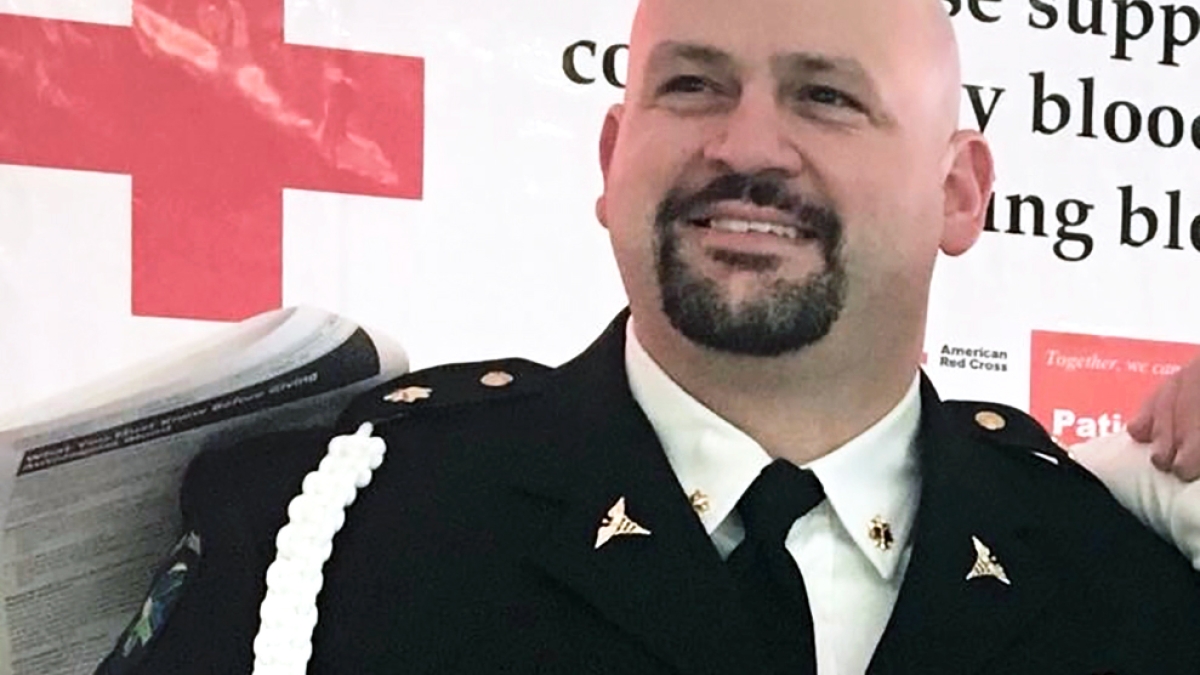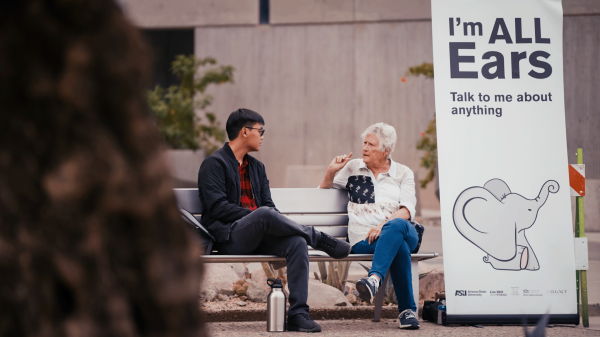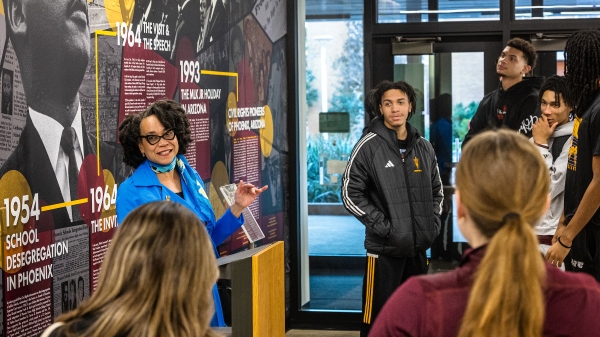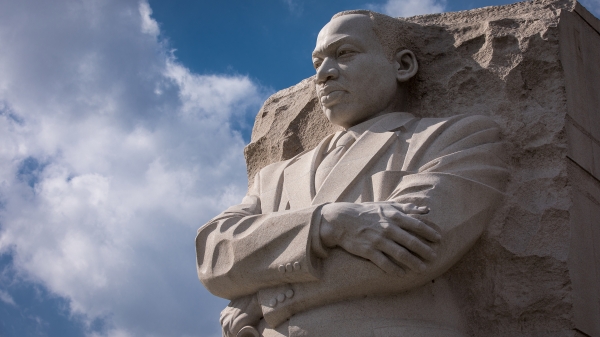Public safety leadership graduate plans to help first responders

Peder Humlen-Ahearn, a deputy chief for Ada County Paramedics in Idaho, earned his master of public safety leadership and administration degree.
Editor’s note: This is part of a series of profiles for spring 2018 commencement.
Peder Humlen-Ahearn is in the business of saving lives. An emergency medical technician by training, he is now a deputy chief for Ada County Paramedics. Humlen-Ahern is responsible for field training and hiring for the 139-person agency that serves the city of Boise and surrounding communities in southwestern Idaho. Humlen-Ahearn credits his recent promotion to deputy chief from battalion chief to the Master of Public Safety Leadership and Administration (MPSLA) program offered online by Arizona State University. He graduates from the ASU College of Public Service and Community Solutions as the spring 2018 outstanding graduate of cross-college programs with a 4.0 GPA.
His hard work, selfless attitude and abundant humor stood out to professors and classmates, said Melanie Gall, co-director of ASU’s Center for Emergency Management & Homeland Security. Gall taught a graduate class that taught students to use geographic information mapping systems to track biohazards.
“When Peder submitted assignments, he didn’t just submit the required documentation,” said Gall. “He also reflected on what he had learned, how much fun he had completing the assignments and how he could apply it in his daily work as a battalion chief last fall.”
Humlen-Ahearn also helped his fellow students with their studies by providing feedback or answering questions on the discussion boards and lab chats.
“I am going to miss the atmosphere as an ASU student as the professors were fantastic and an unbelievable resource,” said Humlen-Ahern. “The student population at ASU in the MPSLA program also have a wealth of knowledge and personal experience that makes learning from each other just as rewarding as learning from our professors.”
Humlen-Ahearn plans to use his newly acquired knowledge and skills to address a problem that affects first responders nationwide. Some take their own lives as a consequence of the tremendous physiological and psychological stress they endure as part of their job.
"Ada County has tragically lost three of our own since 2015," said Humlen-Ahearn. "I want to find ways to make sure our first responder community never experiences the pain of losing one of our own again."
QUESTION: Why did you choose your particular degree at ASU?
ANSWER: I chose the Master's of Public Safety Leadership and Administration (MPSLA) for a few reasons. First, Arizona State is a prestigious university that ranks as one of the best schools in the nation in criminal justice, public affairs, and public safety programs. Secondly, the MPSLA program was exactly what I needed if I wanted to promote within my agency. More specifically the MPSLA program has the specific coursework I needed to make a difference for my employees. Lastly, a major draw was for the Counter-Terrorism Study Abroad Program in Israel. The study abroad program was one of the highlights of my academic career.
Q: What’s something you learned during your program (in the classroom or otherwise) that surprised you, that changed your perspective?
A: What surprised me the most was policy analysis. I learned to find the intended and unintended consequences of each potential policy and to develop multiple alternatives. I found that I have a passion for policy analysis and evaluation. In fact, my capstone project and thesis was to perform a policy analysis for creating a postretirement health care plan for first responders secondary to their chances of increased mortality and morbidity.
Q: You took classes online and I’m told you went out of your way to help classmates master the material and technology you were learning. Can you talk about that?
A: Being in the MPSLA program, we already have a brother- and sisterhood with our classmates. Most of us work in the field already and are trying to make a difference for not only ourselves but our co-workers and brethren. Helping out each other was very natural and easy. Luckily, we have the ability to communicate with each other using discussion boards, YellowDig, phone calls, and hallway conversations. Technology has allowed us to communicate and interact with people from all over in unprecedented ways.
Q: What piece of advice would you give your past self when you were first starting school?
A: The advice I would give to myself would be to remember that it was all worth it. Getting a master's degree at ASU is an accomplishment, one to be proud of, and a very difficult journey. But it was all worth it.
Q: What will you miss most about your experience at ASU?
A: I am going to miss the atmosphere. The professors are fantastic and an unbelievable resource. But the student population at ASU in the MPSLA program also have a wealth of knowledge and personal experience that makes learning from each other just as rewarding as learning from our professors.
Q: What’s next now that you have your degree?
A: I am now two months into my new position as deputy chief. I look forward to taking the knowledge I've learned and applying it to my agency to improve the lives of my co-workers and other first responders. I one day hope that I can be an adjunct lecturer for ASU to give back to the future MPSLA students. I am also contemplating applying for a doctoral program to further my studies, too bad ASU does not have an online program.
Q: What is one issue/problem close to your heart that you would want to solve first if you had all the time and resources you needed?
A: Nearest and dearest in my heart is to further conduct research on the health impacts of first responders and evaluating ways to reduce their chances of increased morbidity and mortality. I would love to create specific policies, founded by research and peer-reviewed articles, to improve the benefits and life of our country's first responders. … First responders have a great deal of physiological and psychological stress that they endure, and finding ways to mitigate the negative effects would be the greatest accomplishment of all.
More Sun Devil community

ASU connects younger, older generations to ease loneliness
When Pencie Culiver sits down on a bench every Tuesday outside Coor Hall, the students are drawn to her and her big sign that…

Local athletes get crash course on Black history in Arizona
Basketball players from Arizona State University and the Valley Suns gathered on Jan. 6 to learn about Black history in Arizona…

ASU names 2025 MLK Servant-Leadership Award recipients
The 2025 honorees have been named for Arizona State University's annual MLK celebration awards.The four awards — community,…

